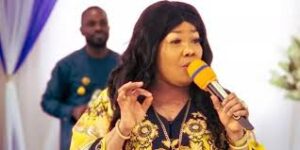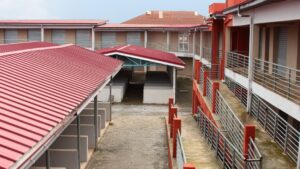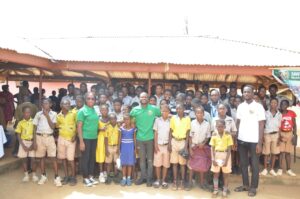
Dr Ibn Chambas
The former Special Representative and Head of the United Nations Office for West Africa and the Sahel (UNOWAS), Dr Mohamed Ibn Chambas, says Ghana has to build trust in its national institutions.
That, he said, is essential for the consolidation of democracy, peace and stability in the country.
“The role played by key national institutions in Ghana during the electoral process has been recognised by many…so we need to build trust in them,” Dr Chambas stated.
He was speaking at the Coalition of Domestic Election Observers’ (CODEO) High-Level Stakeholders Review Workshop on the 2020 Presidential and Parliamentary Elections of Ghana at Ada in the Greater Accra Region.
Dr Chambas said all actors, including civil society organisations (CSOs), must work closely with the Electoral Commission (EC), the National Peace Council (NPC), the National Commission for Civic Education (NCCE), the Police and the Judiciary to address gaps and enhance elections management in the country.
Contribution of CSOs
Dr Chambas acknowledged the invaluable roles of CSOs in the democratic process in Ghana, and urged them to continue with the good work. He said CSOs’ contribution are felt through the promotion of peaceful, transparent and credible elections and conflict prevention and resolution processes.
He added that the contribution of CODEO and its partners in the 2020 elections was instrumental to the successful conduct and conclusion of the process.
Dr Chambas said through the deployment of election observers and regular analyses and advocacy, CODEO once again demonstrated its central role in promoting democratic governance, peace and stability in the country.
He said the December 7 2020 elections was another major test to Ghana’s democratic process and commended the stakeholders for the feat.
“Ghanaians, despite the numerous challenges in a tense atmosphere, once again demonstrated their political maturity and love for country by ensuring a peaceful conclusion to the process and avoiding a post electoral crisis.
“This must not be taken for granted because some countries in the region descended into post electoral crises even before the final official results were announced. In this regard the reported five deaths in relations to the electoral campaigns should be source of concern,” he said.
“The fact that electoral disputes were settled with the utmost respect for the rule of law is indicative of the high level of political maturity and understanding of the tenets of democracy.
“This is definitely a lesson to other countries in the region and even beyond especially with regard to increasing concerns over the decline of democracy in many countries,” he added.
He called for concerted approach to enhance the electoral process in Ghana.
Election review
CODEO organised the engagement to bring together relevant election stakeholders, including state institutions, civil society organisations, media practitioners, political parties and development partners, to deliberate on critical issues relating to electoral integrity in Ghana.
The workshop also sought to take stock of valuable lessons from the conduct of the recently-held elections, drive the agenda towards electoral reforms and enhance future elections.
Sheikh Aremeyaw Shaibu, Acting Chair of CODEO, said the conduct of the election was generally successful, and the Supreme Court verdict on the presidential election petition might have brought some closure to the 2020 elections.
He added that CODEO, however, deemed it appropriate for a holistic assessment to be carried out on the entire electoral processes. This is to identify what worked well, what did not work well, the gaps and challenges as well as the opportunities for improving on the conduct of future elections.








